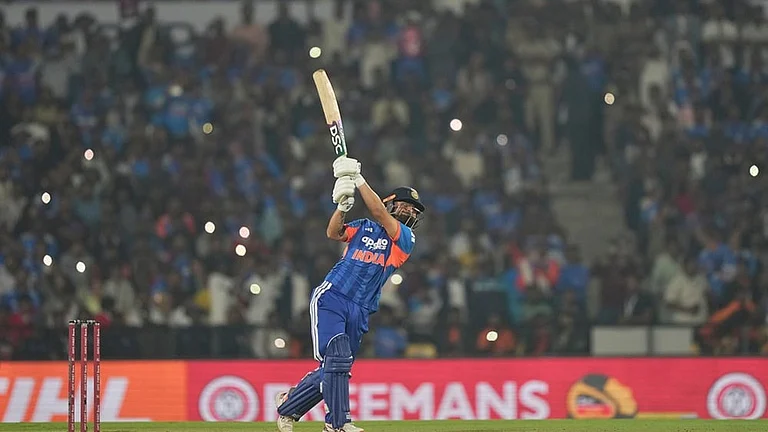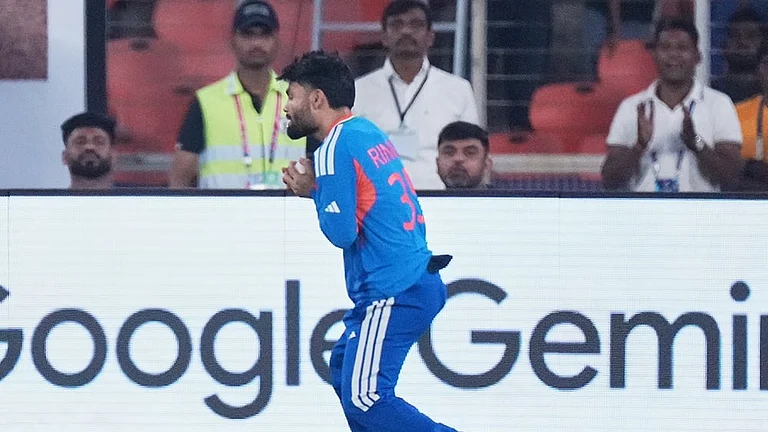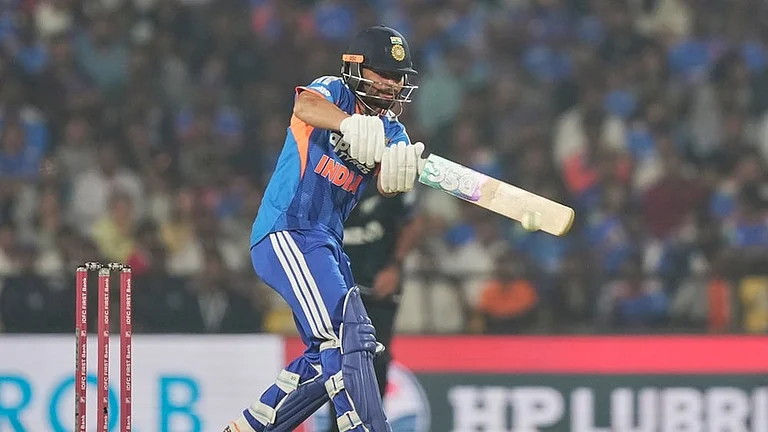He stood at the threshold, not of a door, but of something far more final. Pushkraj Sabharwal leaned against his wooden walking stick, the same one his son had often teased him about. Now, the same son had returned home in silence, not to visit, not to talk, but to be mourned.
Captain Sumeet Sabharwal, the senior-most commander at Air India and pilot of the ill-fated Flight AI171, was brought back to Mumbai on Sunday night in a sealed casket. The Dreamliner had taken off from Ahmedabad on June 12, destined for London Gatwick with 242 people aboard. It never reached its destination, and neither did he. As per the Directorate General of Civil Aviation (DGCA), the aircraft departed at 1:39 pm and issued a "Mayday" distress call shortly after takeoff, reaching only around 650 feet before plummeting. The control tower received no further communication from the aircraft.
In Jal Vayu Vihar, the residential enclave for retired defence personnel in Powai, the palette of the morning was heavy with white. Not the bright white of peace, but the muted one of grief — the softened white of handkerchiefs held over eyes, of pressed kurtas, of silence resting over heads bowed low. Yet no white in that room, nor the world outside, could match the threadbare whiteness of the cloth wrapped around Sumit’s lifeless form.
There were no garlands of extravagance, no orchestrated speeches. Just one father, one sister, under Block F of Jal Vayu, filled with mourners unsure whether to speak or stay silent. Sumeet had never married. He had no children. For the past few years, after his mother’s passing, he had been his father’s only companion, the silent support in a quiet household. They lived simply. He would leave for long-haul flights and return with the same precision he followed in the cockpit, gently, without fuss.
When the crash was reported, it was his sister, living in Delhi with her family, who flew down first. “It’s as though the sky betrayed him,” a neighbour whispered. Jal Vayu residential areas are mostly occupied by aviation and navy staff, so the death of one of their own felt like a communal wound.
At home, Pushkraj did not cry. His tears seemed to have retreated somewhere unreachable. He sat upright on a sofa covered in cotton, acknowledging visitors with a nod, or simply by the weight in his gaze. His sister hovered near him, occasionally refilling water glasses, making sure no one overwhelmed him, though grief had already done so. For all his ninety-two years, life now feels wasted, with his son gone before him.
Among the early visitors was Shiv Sena MLA Dilip Lande. He remembered entering the home and seeing Pushkraj unmoving. “He didn’t speak for a long time,” Lande said. “He just sat there, as if frozen in place. We tried to offer solace, but sometimes, there are no words that help.” Industrialist Niranjan Hiranandani also arrived to pay his respects. He shook hands with his Sumit’s father and stood amongst the throng, which wept in silence.
Captain Sumeet had joined Air India in 1994. He had logged over 8,000 hours of flying time. Known among his peers for his calm under pressure, he had never been involved in any major incident in his career. He was nearing retirement, just a few months away. “He always said he’d spend more time at home with his father,” a family friend recalled. “That was his plan.”
Before noon, the funeral procession left Jal Vayu Vihar and made its way to the Chakala electric crematorium. His casket was borne with solemn care, accompanied by airline officials, family members, and close friends. The road felt quieter than usual. The honking of traffic seemed to hold back.
Back at Powai, visitors continued to arrive, some neighbours, some former colleagues, others just locals who had followed the story in the news. They all heard the same words from Pushkraj, spoken with a tremor, but clear: “He was my only son. A good son. A good pilot.” And he didn’t speak after that.
The home plated '904 Sumeet Sabharwal' is quieter now, the skies above Powai somehow emptier.



























